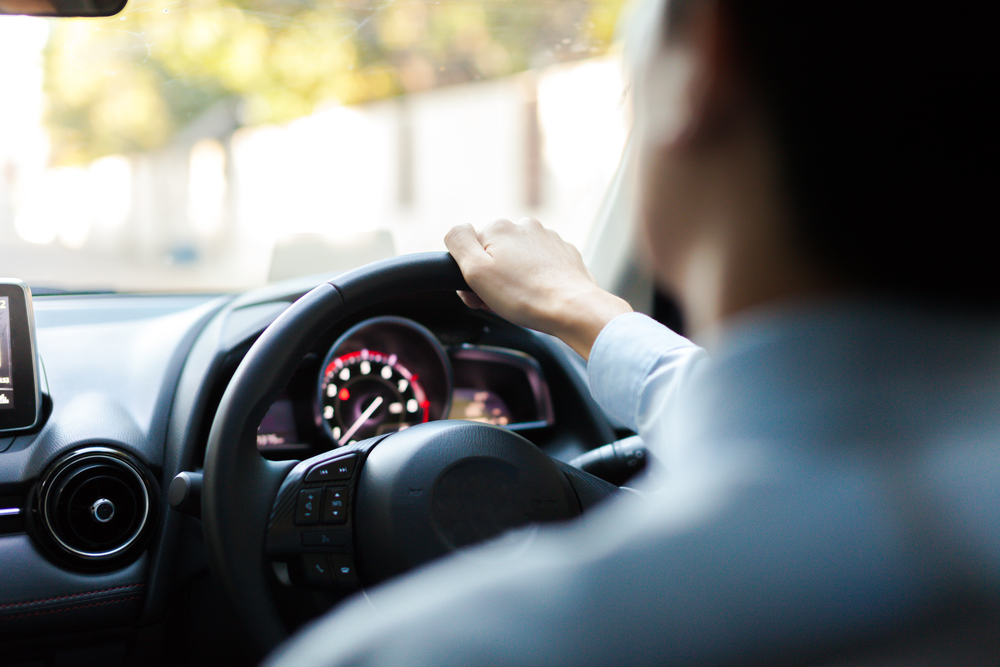Share This Article
The Case of Mr. Bugden v R [2015]
The Facts
20 year old Mr. Bugden was an apprentice chef. One day he was pulled over by police for a random drug test. He was tested, and returned a positive reading for cannabis.
He admitted to police that he had smoked cannabis about 3 days earlier. Unfortunately, the cannabis was still in his system, and he was charged and pleaded guilty to the offence of driving with illicit drug in system under section 111 of the Road Transport Act 2013 (NSW).
Need for a Licence and History of Previous Driving Offences
He needed his licence to drive to work, he had no previous convictions, although he had previous offences of speeding, not displaying a P-plate, and negligent driving, he was otherwise a person of good character. This was also established by the good character reference letters expressing key points.
Mr. Bugden gave evidence in court, expressing his remorse, embarrassment and insight into his offence. He admitted that he had smoked cannabis about 3 days before being pulled over by police for this offence.
The Court Outcome
Mr. Bugden pleaded guilty in the Local Court.
The Local Court Magistrate Dick initially sentenced him with a criminal conviction, $400 fine and 3 months disqualification period, which was reduced from the automatic 6 months.
Mr. Bugden appealed that sentence to the District Court, where the Judge on appeal gave him a section 10 non conviction, predominantly due to his good character, and lack of previous criminal record.
This meant, he avoided a criminal record, he was not disqualified from driving, he didn’t loose demerit points, and he didn’t receive a fine.
The Case of Halper v R [2015] NSWDC
The Facts
On 26 March 2015, Mr. Halper who lives in a remote area, was driving his car to attend his grocery store to do his weekly shopping. The distance he travels once every week, from his home to his closest grocery store, is about 100km.
He was pulled over by police, whilst on his way to the grocery store, for purposes of a random drug test when he then gave a positive reading of cannabis.
He admitted to police that he had smoked cannabis nearly a week ago, unfortunately it was still in his system a few days later, and he was charged and pleaded guilty to driving with illicit drug in system.
Need for Licence and Use of Cannabis for Self-Medication
Mr. Halper had a very strong need for a licence for 3 main reasons:
- The closest grocery store from his home was about 100km away because he lived in a remote area; and
- He was a local musician who needed his car to drive to various locations; and
- He needed to visit and obtain medications from his naturopath due to his physical health problems.
Mr. Halper would smoke cannabis to alleviate the pain he was suffering as a result of a serious car accident he had a few years earlier.
The medications prescribed by the doctors were producing side effects that he could not tolerate anymore, which led him to replace it by smoking cannabis in the privacy of his own home.
The Court Outcome
Mr. Halper pleaded guilty and was initially convicted, fined $400 and disqualified from driving for a minimum 3 months, reduced from the automatic period of 6 months by the Local Court Magistrate Dick.
The Local Court Magistrate’s initial sentence was successfully appealed.
On appeal, the District Court Judge gave him a section 10 non conviction, no fine, no disqualification period. This was largely due to his “extenuating circumstances”, and need for a licence.
As a result, he was able to keep his licence to drive, and avoided demerit points.
Offence of Driving with Illicit Drug in System
The offence of driving with illicit drug in system under s111 of the Road Transport Act 2013 (NSW) has got nothing to do with driving impaired because of having that substance in your system.
In other words, this isn’t an offence of driving impaired due to any influence from the drug in your system (unlike drink driving) effecting you’re driving.
It is an offence to drive with illicit drug in system simply where:
- You had ecstacy, speed, THC or cannabis, morphine or cocaine, in your oral fluid, blood or urine; and
- You were driving at the time, or sat in the driver seat attempting to turn the engine on.
Other jurisdictions, for example, have similar provisions which are mainly aimed at the detection of the level of the drug, like drink driving, effecting your driving.
Arguably, punishing and deterring drivers from driving impaired, who end up effecting the safety of others on the road, based on the level of drugs in your system is fair.
However, driving with an illicit drug in your system where there is no evidence that it impairs your driving, and then being punished for it in NSW is arguably unfair, and serves no real purpose.
Maximum Penalties
If you don’t get a section 10 (non-conviction) for this offence:
- You will receive a conviction, and, either the automatic licence disqualification period of 6 months, which can be reduced by the Court down to 3 months (if you have no previous major offences in the last 5 years); or
- You will get a conviction, and if you have a previous major offence in the last 5 years, either you will get an automatic licence disqualification period of 1 year, which can be reduced by the court to a minimum of 6 months.
Unless you get a section 10 (non-conviction) in court, this offence also carries a maximum fine of $1,100 if it is considered a first offence, or a maximum fine of $2,200 if you have committed the offence in the last 5 years.
The courts don’t normally give maximum penalties. It usually gives maximum penalties to the most serious offenders.
For information on what is a section 10 non conviction, and how to get it, see our section 10 page.
Defences to Driving With Illicit Drug in System
you will be not guilty of this offence if you had, for example, morphine, in your system while driving which was prescribed by your doctor for medical purposes.
This defence is reflected in section 111(5) of the Road Transport Act 2013 (NSW). It says that, it is a defence to the offence of driving with morphine in your blood or urine, if it was caused by consuming the substance for medicinal purposes. This can include, consuming a codeine-based drug purchased from a pharmacy.
Should the Law be Changed?
The current law on this section, simply prohibits you from having an illicit drug, morphine or cocaine in your system while driving. It’s not aimed at detecting the level of the drug in your system in order to gauge the extent of impairment.
It doesn’t consider whether your impaired from driving as a result.
Nor does it care, whether you consumed an illicit substance days earlier, where it remains in your system days later.
In fact, when the laws were created, Mr. Matt Brown on behalf of Mr. David Campbell on 19.9.2006 clearly states in the second reading speech that there “will be no need for police to prove that a person’s driving was impaired; it need only be proved that the drug was present in the person’s sample. This sends a clear message to motorists that driving with any amount of these illegal drugs in the body is not tolerated in New South Wales”.
As Mr. Halper’s case demonstrates, some people use illicit drugs such as cannabis for therapeutic purposes. In this case, it was beneficial for Mr. Halper who used it discreetly in his own home, privately.
The result of being charged with this offence, notwithstanding the above issues, is that it exposes even the most vulnerable people in our community to criminal convictions and licence disqualifications.









